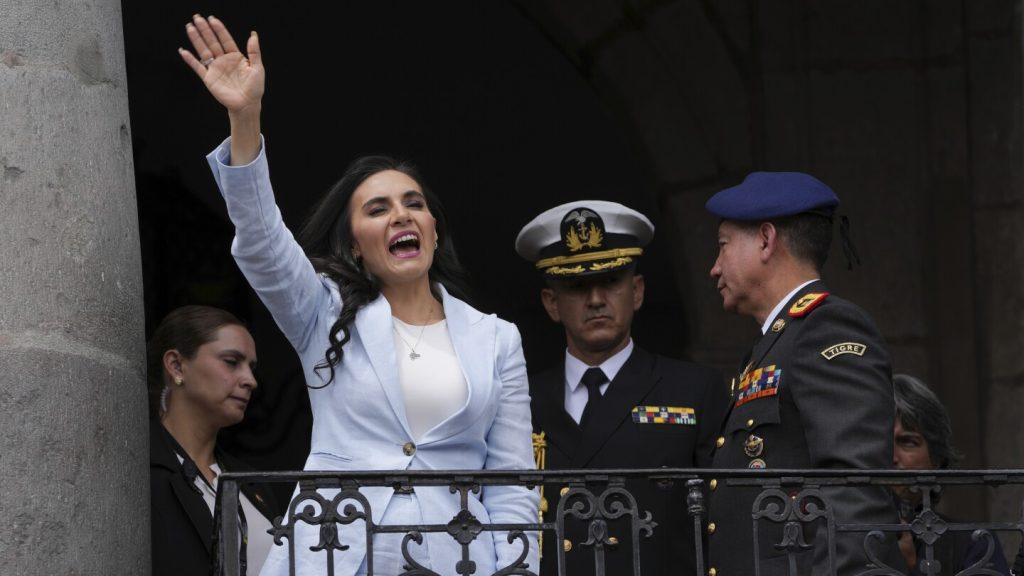Ecuador’s Vice President Verónica Abad has been spared from indictment in a corruption case involving her son, Francisco Barreiro, after lawmakers blocked the move. Despite prosecutors accusing Abad of collusion and presenting evidence linking her to the case, authorities were unable to proceed with her criminal prosecution due to the denial of authorization by lawmakers. As a result, Abad will not face charges until after she leaves office in 2025. Barreiro was arrested in March following corruption accusations against him, including offering a high-level position with a salary of $3,200 per month in exchange for monthly payments from the appointee.
Abad and Barreiro have both denied the allegations through legal representation, prompting further investigation into the case. The rift between Abad and President Daniel Noboa has also come to light, with Noboa labeling Abad as “disloyal” and Abad accusing him and his allies of pressuring her to resign. This strained relationship between the Vice President and the President has added complexity to the corruption case involving her son. Noboa, shortly after assuming office in November, sent Abad to Israel to serve as ambassador, further removing her from the domestic political landscape.
The case against Barreiro has shed light on the internal dynamics within the Ecuadorian government, revealing tensions and power struggles at the highest levels of authority. The accusations of collusion and corruption, as well as the subsequent denial of indictment for Abad, have raised questions about accountability and transparency in Ecuador’s political system. The decision by lawmakers to block Abad’s criminal prosecution has sparked debate among the public and political observers, with some questioning the motives behind the move and others expressing concern about the implications for justice and anti-corruption efforts in the country.
As the corruption case continues to unfold, the focus remains on the actions of both Abad and Barreiro, as well as the broader implications for Ecuador’s political landscape. The refusal to indict Abad at this time has raised concerns about potential conflicts of interest and the effectiveness of accountability mechanisms in the country. Moving forward, the investigation into the allegations of collusion and corruption will likely be closely monitored by the public and international observers, with the outcome of the case having far-reaching implications for Ecuador’s governance and anti-corruption efforts.


